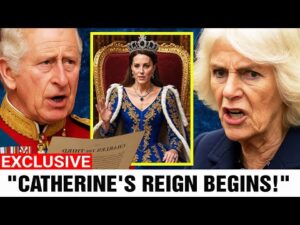NO ONE CARES! Prince Harry’s Speech at Upfront Summit 2025 Had the Audience FALLING ASLEEP!

The Upfront Summit 2025, typically a prestigious event featuring thought-provoking discussions and insightful contributions from prominent figures in media and business, took an unexpected and, for many, deeply uncomfortable turn when Prince Harry took the stage. This wasn’t just any industry gathering; it was a high-stakes convergence of global innovators, venture capitalists, tech titans, and media moguls, all accustomed to presentations that were sharp, visionary,
and delivered with undeniable expertise. The air in the sprawling Silicon Valley venue crackled with anticipation, a palpable energy that fueled hushed conversations about ground breaking technologies and the future of global markets. Yet, when Prince Harry began his address, the energy in the room began to dissipate, replaced by a growing sense of awkwardness and disappointment.
His speech, ostensibly meant to explore the complex and vital role of technology in today’s rapidly evolving society, quickly devolved into what many attendees and subsequent reports have described as a rambling, disjointed monologue. Instead of offering incisive analysis or actionable insights into the digital landscape, Prince Harry seemed to drift between loosely connected topics, touching on broad themes without delving into the specific, data-driven detail that the Upfront Summit audience expected. What should have been an engaging and dynamic address, sparking debate and inspiring innovation, turned into a protracted snoozefest, leaving much of the highly accomplished audience visibly struggling to stay awake and engaged.
The discomfort in the room was palpable. Many attendees, individuals whose time is measured in millions and whose focus is razor-sharp, found themselves questioning why Prince Harry, a figure whose background lies primarily in military service and royal patronage, was chosen as a keynote speaker in the first place. The Upfront Summit is renowned for showcasing leaders who can not only captivate an audience with their presence but, more importantly, enlighten them with their deep expertise and thought leadership.
Harry’s presentation, unfortunately, failed spectacularly to live up to these fundamental expectations. His remarks lacked the intellectual depth, the specific focus, and the coherent structure necessary to command the attention of such a discerning crowd. Rather than offering a fresh, well-researched perspective on the intricate intersection of technology and society, Harry’s speech felt disconnected from the summit’s core themes, shallow in its analysis, and poorly structured, failing utterly to grab or hold anyone’s attention for more than a few fleeting moments.
Reports from the event painted a stark and unflattering picture of an increasingly disengaged audience. Attendees, many of whom are at the forefront of global innovation, were widely spotted checking their phones, scrolling through emails, or subtly glancing at their watches, counting down the minutes until the address concluded. Yawning became increasingly common throughout the hall, and some individuals, perhaps succumbing to the soporific effect of the meandering speech, were even observed nodding off entirely during the presentation. The lack of energy and intellectual stimulation in the room was not just palpable; it was overwhelming, creating a heavy, uncomfortable atmosphere that hung in the air long after Harry had finished speaking.
It didn’t take long for the whispers to start, initially hushed and discreet among small clusters of attendees, but quickly growing louder and more widespread. Many people were left openly wondering why someone with seemingly minimal practical experience or demonstrable expertise in the fields of technology or business was selected to speak at such a high-profile and influential event. Questions circulated about the selection process and whether the summit organizers had prioritized celebrity status over substantive contribution.
This awkward and widely publicized moment highlights a growing and increasingly scrutinized trend surrounding Prince Harry since his decision to step back from senior royal duties: overexposure without commensurate expertise. Since leaving the structured environment of the monarchy, Harry has been in the global spotlight constantly, pursuing various ventures and making numerous public appearances across a wide range of sectors. Yet, his ability to remain genuinely relevant and command intellectual respect in these new fields is increasingly being called into question by both the media and the public.
While Harry has made various public appearances and embarked on high-profile projects since his royal exit, many observers feel that he continues to struggle to define a clear, meaningful, and expert-backed path for himself outside of his former royal title.
His lack of deep, specialized expertise in areas such as media production, technology, corporate leadership, and even the intricacies of global entertainment has become glaringly obvious, particularly when his presentations and contributions are compared to those of the seasoned industry leaders who typically speak at prestigious events like the Upfront Summit. The contrast in substance and delivery is often stark and unfavorable.
Some commentators and insiders have pointed to Meghan Markle as the primary driving force behind Harry’s continued and often ill-suited presence at such high-profile events. Known for her ambitious drive to establish herself and the couple as significant Hollywood and global influencers, Meghan seems to be consistently pushing Harry to remain highly visible in the media landscape. This is widely perceived as a key part of their broader strategy to maintain relevance and capitalize on their fame within the competitive entertainment and corporate industries.
However, the results of this strategy, as evidenced by the Upfront Summit speech, have been far from consistently successful. Far from solidifying their place among the respected figures of Hollywood and Silicon Valley, Harry’s underwhelming and poorly received speech at the Upfront Summit only seemed to further alienate him from the very audience he needed to impress. Many attendees and subsequent critics began to view him more as a celebrity figurehead trading on his name than as a legitimate or influential voice in any meaningful professional or philanthropic sector.
Meghan Markle has also faced heavy criticism in the wake of such events, with many accusing her of strategically leveraging her husband’s royal background and inherent name recognition to advance their joint public image and commercial endeavors. The couple’s often relentless attempts to maintain global relevance and secure lucrative deals have frequently seemed self-serving and lacking in genuine depth, with their ventures in media and entertainment struggling to make a truly impactful or critically acclaimed mark.
Harry’s underwhelming speech at the Upfront Summit served as a stark and public reminder that his post-royal pursuits haven’t gained the substantive traction or respect they seemingly hoped for. It underscored the growing perception that despite their high-profile connections and undeniable fame, their celebrity status alone cannot compensate for a perceived lack of genuine expertise, intellectual depth, or a truly compelling, well-articulated message in the areas they are attempting to break into and influence.
Critics have increasingly argued that Harry’s fame, built almost entirely on his inherited royal status and public persona rather than professional achievement, fundamentally fails to make up for his apparent inability to communicate a meaningful, insightful, or well-supported message in new domains. In trying to position himself as an authority figure or thought leader on complex topics like technology and business, he has, in the eyes of many,
come across as someone who simply doesn’t possess the necessary background or understanding to belong credibly in these fields. Meanwhile, Meghan’s perceived ambition to be seen as a leader and influential figure in Hollywood and beyond has, according to critics, only led to an inflated sense of her and Harry’s actual influence and impact, leaving both of them appearing increasingly disconnected from the realities and expectations of the professional world and the public at large.
Their constant and seemingly strategic attempts to remain relevant and prominent, especially by seeking platforms in high-profile and demanding industries where deep knowledge is paramount, have begun to backfire publicly. Their appearances at such events are increasingly being met not with admiration, but with skepticism and pointed criticism.
What was once widely seen as a charming and dynamic couple trying to carve out an independent and meaningful path for themselves is now being viewed by many as a pair of privileged outsiders struggling awkwardly to establish themselves and their brand outside of the established structure and inherent relevance of the royal family. Their recent public failures, including the widely panned and disastrous speech at the Upfront Summit, are increasingly cited as clear proof that their celebrity status and royal titles alone are simply not enough to ensure their success or earn them genuine respect in the competitive global arena.







